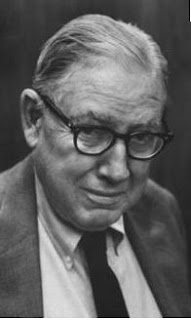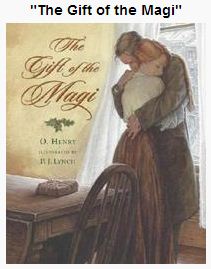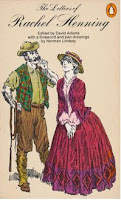 |
| First published 1973 |
The other goal was to make up some books for 2013 reading based on the non fiction book called You've Got To Read This Book. All I can say about that is this book is not a list of books with summaries. It is a series of essays from various writers stating what they have read and what they think the people of the world should also read.
I decided after having a good look at it that instead of choosing their books for my Classics Challenge (here) starting in 2013 that instead I would pick my own titles.
The two goals I did finish up with today were taking a nature walk with the dogs and my camera and I also finished a book with an author whose last name begins with the letter N.
The author with the letter N is Ogden Nash. The book is The Old Dog Barks Backwards. Ogden Nash is another author I enjoy reading who is light hearted, very clever and I would put him on the same shelf with James Thurber, another favourite and O. Henry who I mentioned yesterday.
 |
| Ogden Nash- American writer 1902-1971 |
Ogden Nash (Frederic Ogden Nash), according to Wikipedia, was an American writer born in 1902 and died from a bacterial infection from a 'misprepared' cole slaw in 1971 which aggravated his Crohn's disease.
He lived most of his life in Baltimore although he was originally born in Georgia. He descended from General Francis Nash who gave his name to the city of Nashville, Tennessee. (Quite a bit of trivia happening here).
His style is generally described as "pun like rhymes with words often misspelled for comic effect." He loved baseball, with the Baltimore Orioles being his favoured team and he wrote of social issues based on newspaper headlines and other current afffairs. He did not approve of employers who treated their employees badly. He was once known to say, "People who stand up on the their jobs make less money than those who sit down."
The book, The Old Dog Barks Backwards is a great deal of fun. I thoroughly enjoyed it. The publisher describes him as a "social observer of the sharpest insight, whose humour, sanity and cheerful cynicism appealed to countless numbers of people of all ages."
The Dog Barks Backwards is a posthumous collection of 77 Nash verses, many of which have been published in magazines but none of which has ever appeared in book form.
It is easy to see what a well read man Mr. Nash was while reading this book as he mentions quite a few literary figures in the verses within the book.
I thought I would share one I particular enjoyed about the writer Balzac because it is very clever and quite funny.
AND LO! HONORE'S NAME LED ALL THE REST
 |
| Robert Binks- Illustrator |
Consequently, my acquaintance with Balzac was limited to his opus best adapted to youthful tastes, "Droll Stories."
Yet even then I understood that as a novelist he was undoubtedly major,
And I vowed that to read his complete works would be my project when I should matriculate at some Sunset Haven as a retiree and Golden Ager.
Because, to be truly cultured, a person should read the complete works of at least one major man of letters, or so they say,
And I decided that on my literary menu Balzac should be the specialite.
I planned to devote each weekend from Vendredi through Samedi to "The Human Comedy";
I looked forward with a wild surmise
To meeting "Cousin Bette" and "Cousin Pons," to say nothing of "The Girl with the Golden Eyes";
Also, if only to discover what its title denotes,
"The House of the Cat Who Pelotes."
I should then have absorbed all Balzac, there could be no more.
But now I suddenly find that besides Honore'de there was another Balzac: Seigneur Jean Louis Guez (gaz) de, 1597 (?) - 1654,
And that praise for his prose was once on every literate lip,
Chiefly because he wrote "The Barbon"and "The Aristippe."
That's too many Balzacs for one gray head; I shall turn instead to the plays of Sir William Davenant,
And should you ask me if I have read anything by either Balzac other than "Droll Stories,"well, I
havenant."
Regarding his attitude to social concerns one of the humorous poems he wrote is quite short and sweet and I would venture to say continues to be quite relevant in current times.
GOOSE POPULATION GAINS HIGH LEVEL
(Headline from The New York Times)
He often chose news headlines and then wrote comic verses about them"Besides pollution and erosion
We now must face a goose explosion.
A glut of geese can play the devil
With national life on every level,
Especially in politics,
Where geese and government intermix.
This solemn thought I introduce:
The higher the level, the bigger the goose."
**************************************************************************
Last but not least, after reading such a delightful, comic book I decided to enjoy the 19 degrees we have here today (celsius) and took the dogs for a run up the back to the fire trails. All of us felt like some fresh air.
No need to say anything else but enjoy the photos.
 |
| The fire trail goes up towards Mt. Wellington. |
 |
| Two of them weren't keen about getting their feet wet, but one splashed through the water as though he was born to it. |
 |
| The beautiful shadings of the gum tree. |
 |
| The muddy fire track and a very functional tree trunk. |
 |
| Home. |
















































